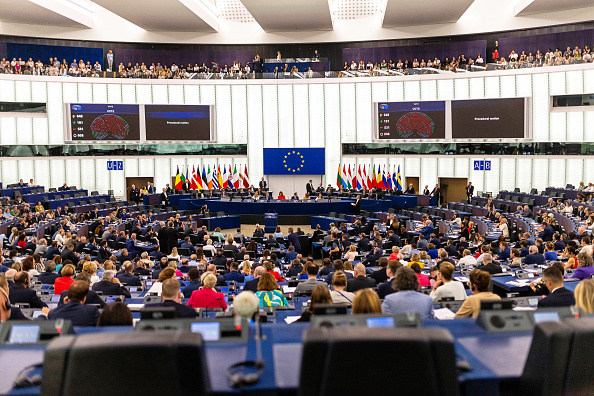The Critical Medicines Act Must Deliver for Patients Who Depend on Plasma
The Critical Medicines Act (CMA) is an opportunity to address Europe’s medicine shortages, particularly for patients relying on plasma-derived therapies. It must ensure resilient plasma supply chains, patient-centred procurement, balanced stockpiling, and support access to innovative treatments like gene therapy.

Recent crises, from antibiotic shortages to disruptions in the complex supply chain of plasma-derived medicinal products (PDMPs), have revealed how fragile Europe’s pharmaceutical supply chains have become.
For tens of thousands of people living with Primary Immunodeficiencies (PIDs) in the EU, these shortages are not an abstract concern. Their health depends on continuous access to immunoglobulin therapies that are complex to produce, have no substitutes and are irreplaceable. An interruption or even a decrease in immunoglobulin dosage can have serious, life-threatening consequences. In Romania, for instance, supply interruptions have already led to tragic losses of life.
To truly deliver for patients, the CMA must be built on resilient supply chains, sustainable investment and genuine patient involvement at every stage.
Europe’s plasma challenge
As the source material for immunoglobulin therapies, which are vital for people with PIDs, recurring plasma shortages have repeatedly exposed the vulnerability of this patient community. The European Medicines Agency (EMA) has confirmed that current shortages of immunoglobulins are expected to persist until at least June 2026.
Unfortunately, this situation stems from Europe still falling far short of meeting its plasma needs, relying heavily on the generosity of voluntary donors and on imports from the United States to sustain its supply. About half of the plasma collected in the EU originates from Austria, Germany, Czechia, and Hungary where national plasma collection programmes enable both the public and private sector to collect plasma.
The CMA must address these challenges by ensuring that the measures proposed to ensure availability, supply and production of critical medicines, such as immunoglobulins and other PDMPs, reflect the unique characteristics of plasma supply chains and carry out specific assessments that address barriers to access.
IPOPI welcomed MEP Sokol’s draft report and his commitment to integrate the patient perspective in future actions on the CMA, but as we enter the final stages of the Health committee’s negotiations, we also urge policymakers to consider the Critical Medicines Alliance’s recommendations into their final position.
Beyond price: Patient-centred procurement
Immunoglobulin therapies are not interchangeable. Each therapy is distinct and no single product works for all persons with PIDs. For this reason, clinicians must have the flexibility to tailor treatment to each individual’s clinical profile and tolerance.
However, in many EU Member States, procurement systems prioritise pricing above all else, often through tendering processes that limit product diversity and create abrupt switches between products, from tender to tender. Such practices undermine optimal patient care and continuity of treatment, resulting in lower health outcomes.
The CMA provides an opportunity to introduce guidance that recognises how procurement of medicines should follow criteria such as therapeutic diversity and personalised care. Procurement must move beyond a race to the lowest price and instead reflect the needs of patients and the clinical realities of their conditions.
Patients first, a discerning approach to stockpiling
The question of stockpiling has also been a central element of the CMA debate and sparked divergent views among policymakers. While stockpiles can play a role in protecting against short-term supply disruptions, they must be coordinated and implemented carefully to avoid unintended consequences such as distorting supply chains or exacerbating shortages elsewhere.
For plasma-derived products, in particular, stockpiling strategies should be informed by input from patient groups, clinicians and plasma experts. A balanced, evidence-based approach is essential to ensure that stockpiles strengthen rather than strain supply stability.
Towards a strategic vision for gene therapy
Alongside PDMPs, the CMA should also consider the opportunities afforded by gene therapies, which represent a new frontier for many rare and genetic diseases, including some forms of PID. Highly innovative gene therapies have the potential to be life-changing, or even curative for certain PID patients. However, they suffer from regulatory bottlenecks and poorly adapted Health Technology Assessment (HTA) policies which mean that, even with the support of EU research funding, often become inaccessible for patients or even withdrawn from the EU markets.
The CMA could offer a platform to address these barriers by facilitating joint procurement mechanisms, improving cross-border coordination, and ensuring that investments in innovation translate into real, equitable access. For many patients, gene therapy represents a last-chance treatment but also a potential cure. It must not remain out of reach because of regulatory and policy gaps.
Ensuring better health outcomes for patients through the CMA
The CMA has the potential to become one of the EU’s flagship health initiatives of this mandate. Its value should be measured by whether it delivers for the patients whose lives depend on secure, timely access to essential medicines.
IPOPI strongly believes that the Critical Medicines Alliance has a crucial role to play in developing long-term solutions that ensure better health outcomes for people living with PIDs – for example, by supporting comprehensive assessments of supply chain vulnerabilities and addressing bottlenecks in the collection, production, and distribution of PDMPs.
We urge EU policymakers to make patients the pillars of this legislation. The CMA must not only safeguard supply chains but also strengthen trust in Europe’s ability to care for those whose lives depend on continuous access to essential therapies.
Martine Pergent is the President of IPOPI, and Johan Prévot is the Executive Director of IPOPI.






